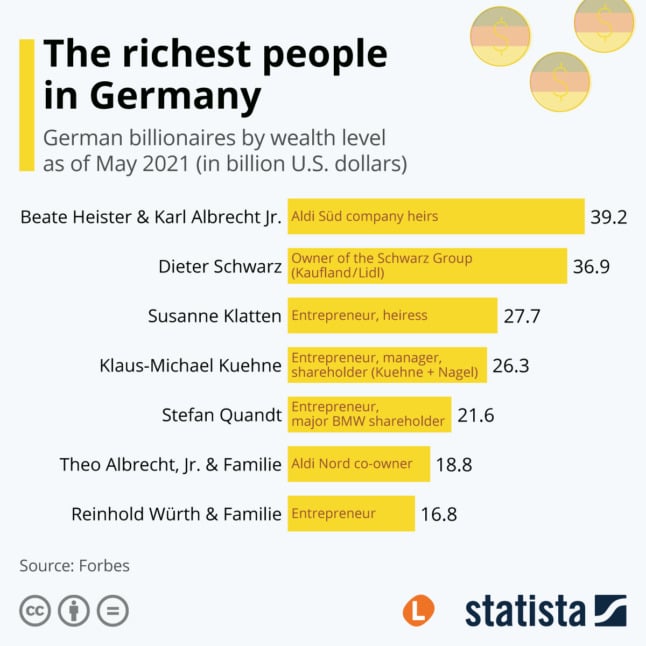In 2000, 62 percent of the German population belonged to the middle class, but by 2006 this figure had dropped to 54 percent, or 44 million people, said the German Institute for Economic Research (DIW) study. DIW said the rich have become richer and the poor not only poorer, but greater in number.
“There is a bigger concentration on both ends of the scale,” the research institute said in a statement. It explained that Germany’s robust economic upswing had benefited the rich more than the poor.
“The incomes of those in the upper half of society grew faster than those in the lower half, which means that inequalities on the income scale grew,” it said.
The study defined the middle class as those who earn between 70 and 150 percent of the median income in the country.
It found that those who have suffered most in the six years under review where the average income groups, who earn between 90 and 110 percent of the median salary.
“They have registered the greatest losses, shedding about five percent of their income,” researchers said.
DIW found that the feeling of economic insecurity among Germans had also decreased as more labour market flexibility meant a growing number of people in temporary jobs.
DIW’s findings come amid an unfolding tax evasion scandal believed to embroil hundreds of wealthy Germans who have stashed billions of euros in secret accounts in Liechtenstein.
The affair has highlighted workers’ concerns that they have not been allowed to enjoy the fruits of the country’s economic recovery – a sentiment that has helped drive a series of ongoing strikes in demand of higher wages.
Last month, striking workers signaled their impatience with the wealth gap and calls for belt-tightening by holding up banners proclaiming “we also want to invest in Liechtenstein.”



 Please whitelist us to continue reading.
Please whitelist us to continue reading.